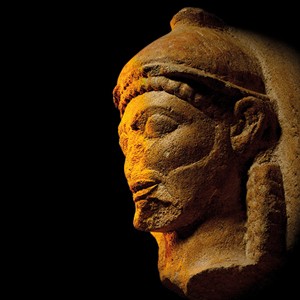Sicily: culture and conquest
21 April 2016 – 14 August 2016
Sicily. The largest island in the Mediterranean. The home of Mount Etna. A cultural centre of the ancient and medieval world.
Sicily has been shaped by waves of conquest and settlement by different peoples over 4,000 years. Since the 7th century BC, Phoenicians, Greeks, Romans, Byzantines, Arabs and Normans all settled or invaded the island, lured by its fertile lands and strategic location. Over time, this series of conquests forged a cultural identity unlike any other.
This exhibition tells Sicily’s fascinating stories – from the arrival of the Greeks and their encounters with the Phoenicians and other settlers, to the extraordinary period of enlightenment under Norman rule in the 11th to 13th centuries.
For much of its history, Sicily was admired and envied for its wealth, cultural patronage and architecture. In the exhibition, ancient Greek sculpture, architectural decorations from temples, churches and palaces, early coinage, stunning gold jewellery, and Norman mosaics and textiles demonstrate Sicily’s diversity, prosperity and significance over hundreds of years.
Discover an island with a cosmopolitan history and identity – a place where the unique mix of peoples gave rise to an extraordinary cultural flowering. The art and objects they produced are some of the most beautiful and important in the history of the Mediterranean.



